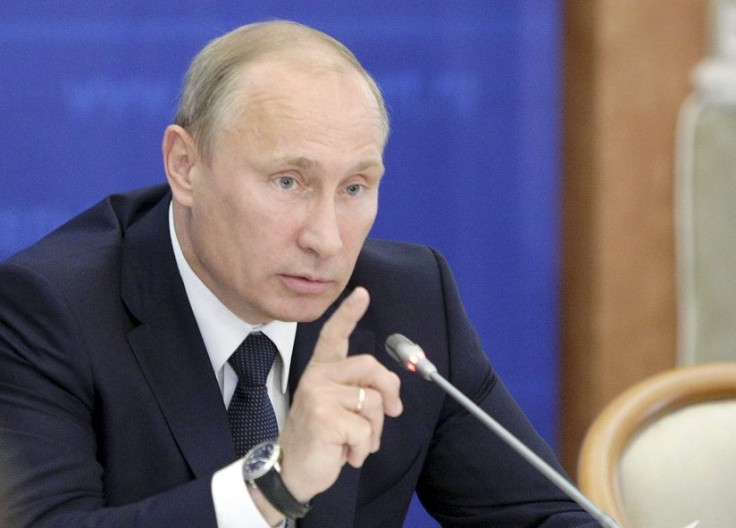Putin: I Don’t Eavesdrop Anymore. The KGB Told Me That’s Not Nice.

Russian President Vladimir Putin jokingly told members of the All-Russia People's Front, a political movement he started, that he's stopped eavesdropping since he left the KGB, because it's not a nice thing to do, Russia’s RIA reported on Friday.
During a conference, Yana Lavrentova, a member of the Council for Human Rights, asked Putin a question about Russia's juvenile justice system. To illustrate her point, she told the president of a conversation between to children: one was telling the other "just wait a little" for a new law to pass that will permit children to report their parents.
Lavrentova called the new law into question by pointing out that children don't realize or foresee the full consequences of reporting their parents to the police. Implied in her question was the legendary propaganda story of Pavel Morozov, a young boy in the 1930s who allegedly turned his father in to the political police for being an enemy of the then-new communist regime; as a result of his actions, Morozov's father was imprisoned in a labor camp and then executed.
When Putin asked Lavrentova where she had heard this story, she admitted that she had overheard it at a St. Petersburg playground. The President responded with a condescending smile.
"Eavesdropping is bad,” he said. “I figured that out when I was at the KGB. I've quit doing it.” He then thanked Lavrentova for calling attention to “an important social issue.”
The nation's laws that affect juveniles have been a topic of heated discussion in Russia in the past few years, and Putin has previously stated that the public's opinion will be considered as those laws are revised. He admitted that ambiguous laws about children's rights and protection pose obvious risks. The State Duma, Russia’s Parliament, is currently deliberating two laws concerning juvenile justice, both of which were proposed by current Prime Minister Dmitry Medvedev.
Russians are wary of laws that place the interests of children above those of parents. In a February poll, 71 percent of respondents said they're against such laws in general; 74 percent oppose laws that would make it a criminal offense to leave children unattended for even short period of time; 60 percent believe that children shouldn't be allowed to report parents to the police; and 57 percent support the creation of special juvenile courts.
© Copyright IBTimes 2024. All rights reserved.






















